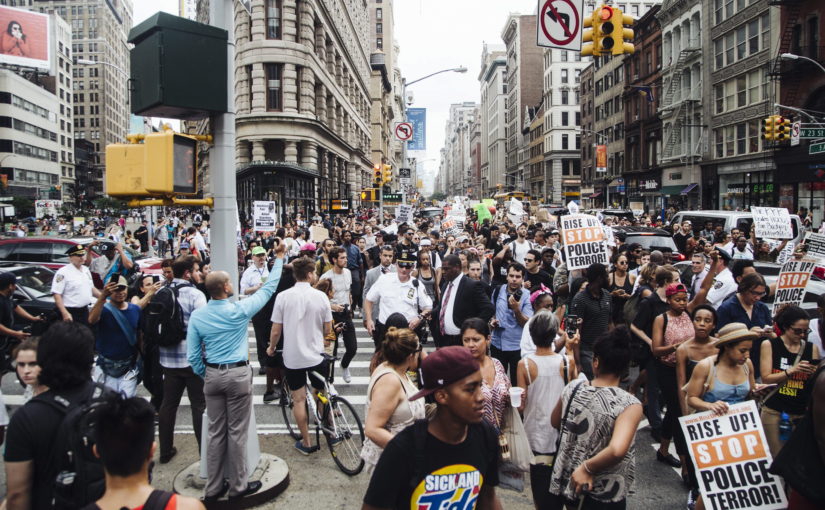“This is war, man, this is war.”
Oakland, California. It’s a sunny day late in September, just a few weeks before the 2016 presidential election. I’m traveling the country – thanks to a Holbrooke-Grant by the International Journalists’ Programmes – to meet politically active African Americans and find out what, if anything, has changed for them during the past eight years, and what they are fighting for.
On this sunny afternoon, hundreds of formerly incarcerated and convicted people, about two thirds of whom are black, meet at an airport hotel in Oakland, CA to unite their initiatives against mass incarceration and for the rights of ex-prisoners. They plan to create a national movement. The discussion revolves around rehabilitation, re-entry programs, and the legalization of marihuana. After lunch, a small group of activists assembles in front of a television camera. A woman, her hair dyed blond, says she is “rebellious to the system”. A thin young man wearing a Keffiyeh says there’s a “genocide” of black Americans and a six foot guy yells: “There is no hope!” His voice cracks.
Oakland, the same day, just a few hours later. On 10th street, at the Oakland Museum of California, young couples are shoving strollers past food trucks, feeding their children bits of Quesadillas. In the museum’s court yard, a Samba-band is playing. Everybody is in high spirits. White women are dancing with black men, a Hispanic looking guy whirls a little blond girl through the air, a black transgender moves elegantly to the music. She is wearing golden high heels.
To me, this is the Obama-era feeling: Euphoria and despair squeezed into the same day, the same town, the same State of the Nation.
After eight years, it’s all still there. In post-Obama America, black Americans will still be much more likely to go to prison or to be killed by a police officer than white people. All over the country, millions of black children still go to poor inner-city schools that send them on to jail. Republican states still try to keep black voters from the ballots. And racism is still a harsh reality in most, if not all black American’s lives.
And still, at the end of Obama’s presidency, there’s a feeling of a new beginning amongst black activists all over the country. “All of us, or none”, formerly incarcerated men and women chanted at their meeting in Oakland. It’s a line from a poem by Berthold Brecht. It was written in 1934. “Slave, who is it that shall free you?” Brecht asked, and answered: “Comrade, only slaves can free you. Everything or nothing. All of us or none.”
But who is “all” today? Is there an “all” at all? Is there a civil rights movement beyond Black Lives Matter that considers itself “a movement” in Brecht’s revolutionary sense?
I have met seven African Americans to ask them. Their lives and their work reflect the challenges the community is facing at the end of Obama’s presidency. You can read all of their stories at once, just click on to the next chapter. Or you can choose to read just a few stories you’re particularly interested in. There’s an overview in the menu to the left:
Kamau Bell, a comedian, talks about being married to a white woman – and what it was like to meet a Ku Klux Klan Grand Wizard. Patrisse Cullors tells me about founding Black Lives Matter, a movement that’s not a movement, and about her brother, whose story led her to do the work she does. John Lewis, hero of the Civil Rights movement, tries to reach out to millennials, but can neither heal nor disguise the conflict of generations. Ashley Bell, a strategist to the Republican National Committee, says he believes Donald Trump is the solution. Sherrilyn Ifill, president of the NAACP Legal Defense Fund, fights Texas on voting rights. Writer D. Watkins recounts his school days in East Baltimore, and tells me why reading is better than protesting. And Norris Henderson, an ex-prisoner from New Orleans, tells me about life in Louisiana State Penitentiary and how he fights mass incarceration.
Got to Chapter 1 – White People and Black Hair. Comedian W. Kamau Bell about being married to a white woman and meeting the Klan.
